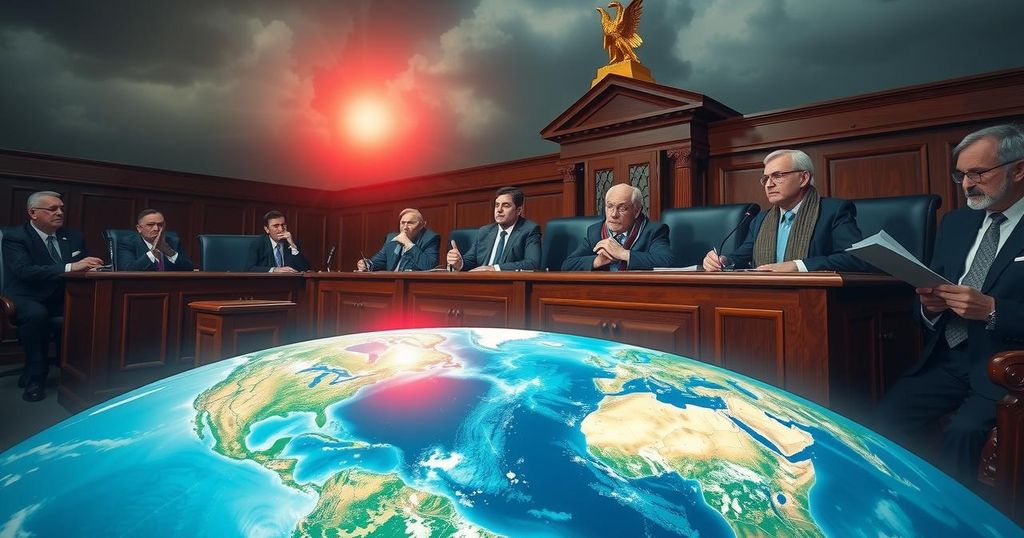The International Court of Justice is hearing a case involving climate change responsibilities of nations, with testimony from nearly 100 countries led by Vanuatu. The court will examine obligations related to greenhouse gas emissions and the legal consequences of harming the climate system. Although the ruling will not be legally binding, it may influence climate litigation worldwide, with hearings concluding on December 13 and a decision expected in 2025.
The International Court of Justice (ICJ) in The Hague has commenced hearings on pivotal climate aspects that may elucidate the legal obligations of nations regarding climate change. This hearing involves testimonies from nearly 100 countries, initiated by Vanuatu, an island nation severely affected by climate change. The deliberations will explore what responsibilities countries hold in combating climate change and addressing the damages incurred from rising global temperatures.
It is important to note that while the court’s decision will not carry legal binding power, it holds the potential to influence climate change litigation worldwide. The initiative for a legal opinion was originally proposed by law students in Fiji five years ago and subsequently adopted by Vanuatu, which has faced dire consequences from climate-related events, including a recent double cyclone that affected approximately 80% of its population.
Under pressure from Vanuatu and other countries, the United Nations General Assembly referred two significant climate questions to the ICJ concerning the obligations nations have to safeguard the Earth’s climate system from harmful greenhouse gas emissions. Additionally, the court has been asked to determine the legal ramifications when countries have inflicted serious harm on the climate due to their actions or lack thereof.
Vanuatu’s first witness, special envoy Ralph Regenvanu, emphasized the urgency of the matter by stating, “We are on the frontline of climate change impact… Our call for an advisory opinion from the ICJ on climate change is at a pivotal moment… one that sets clear the international legal obligations for climate action.” The ICJ hearings will last until December 13, with a decision anticipated in 2025, amidst participation from major powers such as the United States and China, as well as representatives from OPEC.
This court case emerges shortly after a lackluster climate commitment from wealthier nations at COP29 in Azerbaijan, wherein they resolved to provide $300 billion annually for climate finance by 2035, a measure criticized by developing nations as grossly inadequate.
The case being deliberated by the International Court of Justice addresses critical issues regarding the responsibilities of countries in relation to climate change under international law. The increasing severity of climate impacts on vulnerable nations, such as Vanuatu, underscores the urgency of establishing legal frameworks that can influence future environmental policies and reparations. The ICJ hearings represent a significant moment for international climate law, laying the groundwork for potential legal precedents.
In conclusion, the ongoing hearings at the International Court of Justice represent a significant step in defining the legal responsibilities of nations regarding climate change. The outcome may not be binding but could have profound implications for climate-related lawsuits globally. The case is seen as a critical effort by vulnerable nations to seek accountability and reparations for the environmental damages incurred due to historical pollution by developed countries.
Original Source: www.bbc.co.uk







